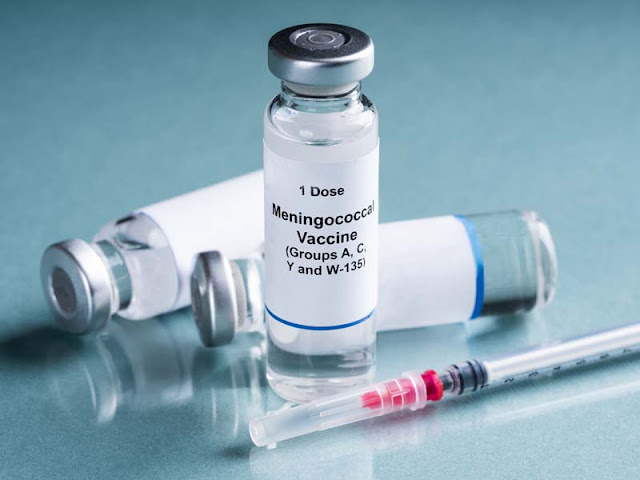Revolutionizing Fields: The Emergence of Agricultural Biological Solutions in Shaping Sustainable Agriculture
 |
| Agricultural biology |
Agricultural biology is an
interdisciplinary field that applies biological concepts and techniques to
solve problems in agriculture. Over the past few decades, we have seen
tremendous advancements in agricultural biology that are helping to address
some of the biggest challenges facing the agricultural industry. This article
examines some of the emerging trends in this important area of study.
Genetic Engineering of Crops
One of the most significant
developments has been the genetic engineering of crop plants. By isolating
specific genes and transferring them between organisms, scientists are now able
to modify crops to enhance desirable traits like yield, nutrition, drought
tolerance, pest resistance, and more. Some key areas where genetic engineering
is making an impact include:
- Disease Resistance: Genes have
been inserted into crops like papaya, potatoes, and squash that help protect
against fungal, bacterial, and viral pathogens. This reduces the need for
pesticides and losses from disease.
- Insect Resistance: Crops like
corn, cotton, and soybeans now contain genes from Bacillus thuringiensis (Bt)
that produce proteins toxic to certain insect pests. This has led to reduced
insecticide usage and higher yields.
- Drought Tolerance: Genes that
help plants cope with lack of water have been introduced into crops like maize,
cassava, and rice. These drought-tolerant varieties show greater stress
resistance and stability of yields during dry seasons.
- Nutritionally Enhanced
Varieties: Through genetic engineering, staple crops like rice, cassava, and bananas
have been biofortified to contain higher levels of nutrients like vitamins,
minerals, and amino acids to combat malnutrition.
While genetic engineering remains
a controversial technology, it shows considerable promise to help address many agricultural
and food security challenges through development of hardier, more nutritious
crop varieties.
Precision Agriculture and Farm Robotics
Another emerging trend is the
increasing digitization and automation of Agricultural
Biology through precision farming techniques and farm robotics. Some
applications in this area include:
- Precision Planting: GPS-guided
seeding machines can analyze soil composition and plant seeds at precise
intervals and depths customized for optimal growth. This leads to more
efficient use of inputs.
- Variable Rate Technology:
Sensors and automated systems allow for variable application of water,
fertilizers, and pesticides tailored to tiny sections of a field based on
real-time assessment of crop needs. This reduces waste and environmental
impact.
- Harvest Automation: Robotic
milking systems, fruit/vegetable harvesting machines, and crop processing
robots are reducing the need for manual labor during physically demanding
harvest operations.
- Drone Technology: Agricultural
drones equipped with cameras, sensors, and Precision-Guided Ordnance (PGO) are
mapping fields, monitoring crop health, applying treatments, and preventing
pest outbreaks from the air.
As connectivity and automation
advance, precision agriculture promises to revolutionize farming practices
through hyper-efficient customized care of every plant. This elevates
productivity and environmental stewardship to new levels.
Cellular Agriculture and Cultivated Meat
A radical new paradigm emerging
is "cellular agriculture", which uses cell cultures instead of whole
farm animals for meat production. In a cellular agriculture facility, animal
cells are cultured and grown in controlled bioreactors to produce meat,
eliminating the need to raise and slaughter livestock. Some key developments
include:
- Cultured Meat: Pioneering
companies are now producing "cultivated meat" using bovine stem cells
in bioreactors. The first cultured beef hamburgers received regulatory approval
for sale in 2020. Scaling up production will lower costs.
- Cultured Dairy: Methods to
culture milk proteins from cow cells without the animal are in development and
may disrupt the dairy industry. Cultured dairy provides an animal-free
alternative for vegans and the lactose intolerant.
- Cultured Seafood: Researchers
are applying the same principles to produce shrimp, salmon and other seafood in
urban, land-based facilities to alleviate pressure on ocean fisheries.
While still at a pilot stage,
cellular agriculture could revolutionize meat production over the coming
decades. It promises more sustainable and humane methods to satisfy the world's
growing demand for animal proteins with less environmental impact.
Agricultural Microbiomes
Finally, another important trend
is understanding and managing the microbiomes critical for soil, plant, and
animal health. Key focus areas include:
- Soil Microbiome Engineering:
Identifying beneficial soil microbes and devising probiotic inoculants to
enhance nutrient cycling, disease suppression, drought tolerance, and other
plant-growth promoting functions in agricultural soils.
- Plant-Associated Microbiomes:
Elucidating the microbial consortia that naturally protect plants and
contribute to their nutrition uptake, stress responses, and productivity.
Engineering robust root and foliar microbiomes through probiotics.
- Livestock Microbiomes:
Characterizing the gut and rumen microbiomes of cattle, poultry, and other
livestock to discover probiotics improving feed efficiency, animal health, and
methane emission mitigation. Also fecal transplants for disease control.
Harnessing microbiomes holds
great promise to develop sustainable, natural alternatives to synthetic
agrochemicals and revolutionize agricultural productivity through optimization
of below-ground biological processes and plant-microbe interactions.
Get More Insights Here
https://www.newsanalyticspro.com/agriculture-with-biological-tools-and-environmental-harmony/



Comments
Post a Comment